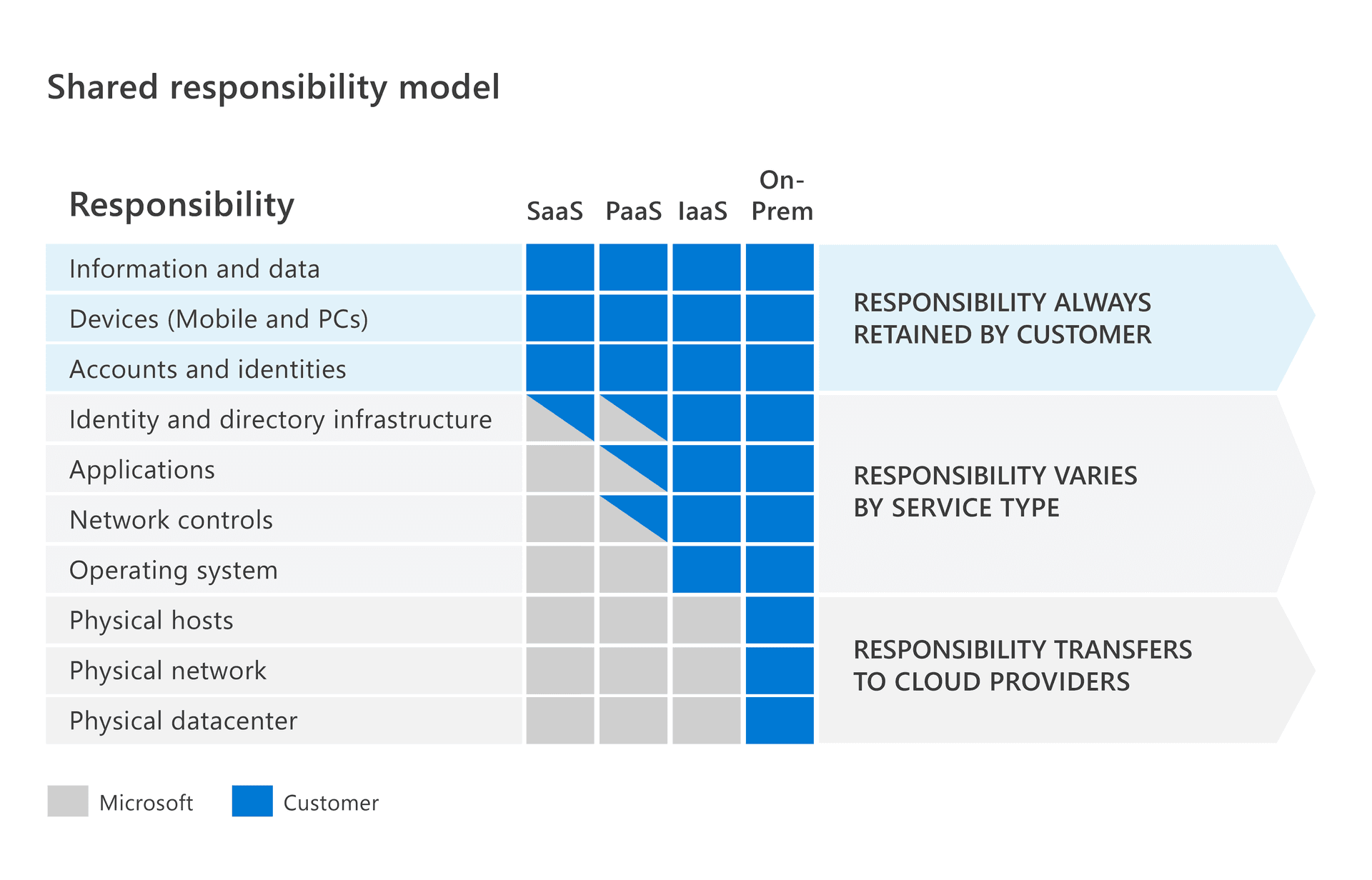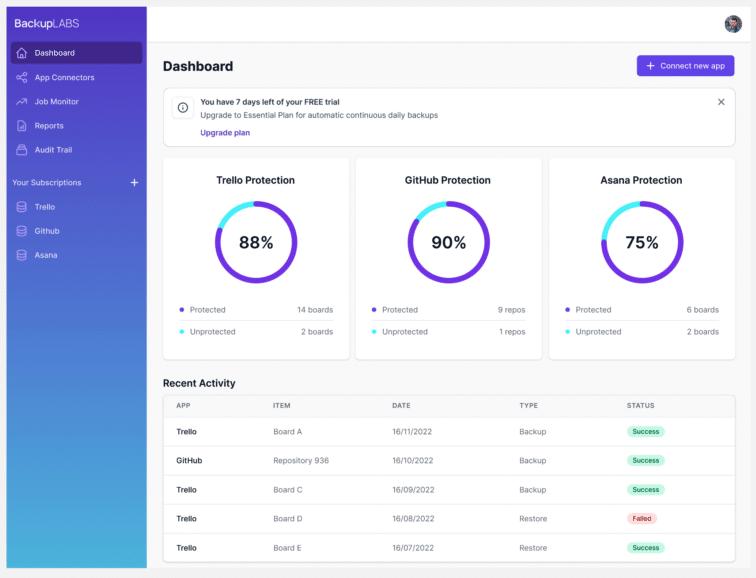Losing data in Software-as-a-Service (SaaS) apps can be a nightmare for any business, big or small. It means losing important customer information and essential data for running your business smoothly.
Many people don’t realise how common and serious these incidents are. Even large organisations regularly fall victim to data loss events.
From simple mistakes to disasters like datacenter fires or cyberattacks, data loss can happen for many reasons. In this guide, we’ll explore some recent horror stories to show just how prevalent the threat is, and how important security measures are.
The Code Spaces cyberattack
In 2014, Code Spaces, a code hosting and project management provider, was forced to shut down after a devastating cyber attack resulted in the complete loss of its services and data.
Code Spaces stored crucial data like source code and collaboration history. When hackers breached their systems and deleted data and backups, clients’ ongoing projects were disrupted, leading to productivity losses and financial damages.
This incident underscores the importance of customers having their own data backup solutions, not blindly rely on their own provider.
The OVHcloud data centre fire
OVHcloud, one of Europe’s largest cloud service providers, experienced a significant fire at its data centre in Strasbourg, France, in 2021.
The fire led to the destruction of one of the data centres (SBG2) and partial damage to another (SBG1). This incident caused service disruptions and data loss for many OVHcloud customers whose infrastructure was hosted in the affected data centres.
Thousands of websites and services were knocked offline and permanently lost. It came as a surprise to many users, who’d assumed that because their data was in the cloud, it was automatically backed up. It wasn’t. Or the ones that did have a backup were storing the backups in the same datacenter.
They soon realised that “in the cloud” simply means in someone else’s datacenter, and that the responsibility for backing up data lies with customers, not the cloud service.
Musey’s accidental permanent Google Workspace deletion
Musey Inc., a California startup that created an interior design app for influencers and home decorators, faced a data failure in 2019.
The company had stored all its crucial business data in its Google Workspace account. But disaster struck when an administrator accidentally deleted the main Workspace account instead of a test user’s.
Musey had relied on Google’s SaaS solution to store product development and user testing work.
Musey took legal action against Google, hoping to retrieve its lost data. But, they learned that it wasn’t Google’s responsibility to restore the data under the Shared Responsibility Model; it was Musey’s responsibility to ensure proper backups and data management practices.
Unfortunately, the data recovery efforts failed. Without it, Musey found it impossible to continue their startup operations and shut down their business.
GitHub’s data breach
In 2023, GitHub disclosed a data breach where hackers stole code-signing certificates for some GitHub Desktop and Atom versions. This breach had major implications for GitHub and its users.
Unauthorised access to repositories – including those from disapproved GitHub-owned organisations – was discovered, leading to the theft of code-signing certificates to verify software authenticity.
The investigation revealed hackers had access to GitHub’s internal system, allowing them to clone repositories and steal the certificates. The breach raised concerns among GitHub’s customers about software integrity and security risks associated with compromised certificates.
Developers and organisations relying on GitHub for collaboration and version control had to assess the security of their projects and take precautions to mitigate potential risks from the breach.
Atlassian’s 13-day outage
In 2022, Atlassian experienced a major 13-day outage that affected a subset of its customers. The incident was the result of an error during the deletion process of a legacy application following Atlassian’s integration of Mindville’s Insight product into its platform.
Human error led to miscommunication between teams, resulting in the accidental deletion of 775 customers’ sites.
This included crucial services like Jira, Confluence, and Opsgenie, rendering them unavailable to affected customers. The deletion occurred without triggering any alerts, and it was only discovered when the first impacted customer opened a ticket.
Atlassian formed a cross-functional incident response team and worked around the clock to resolve the issue. But, challenges arose as customer contact information was deleted, hindering communication and ticket filing.
Atlassian’s incident response highlighted gaps in their preparedness despite previous claims of robust disaster recovery measures.
GitLab’s database incident
In 2017, GitLab experienced a significant database incident involving the accidental deletion of a production database.
An engineer mistakenly removed data from the primary database instead of a secondary one. Despite immediate efforts to recover the lost data, GitLab encountered challenges with backup and replication systems.
The production database’s accidental deletion resulted in data loss for some GitLab users, including issues, merge requests, users, comments, and snippets over six hours.
This caused disruptions for GitLab customers who relied on this data for their projects and workflows.
KPMG Microsoft Teams chat data deletion
KPMG faced a major IT mishap that significantly impacted their customers’ data back in 2020.
When trying to remove a single user’s account from an active retention policy, the Global Technology & Knowledge (GT&K) group inadvertently applied the change to the entire KPMG Teams deployment.
As a result, personal chat histories for 145,000 Microsoft Teams users were accidentally and permanently deleted.
This blunder disrupted communication channels, affecting customer collaboration and causing operational disruptions.
Why should you backup your SaaS cloud data?
These chilling tales underscore the steep price of losing data stored in the cloud. Data disasters can happen to anyone at any time, so whether they’re due to human error or malicious cyberattacks, it’s crucial to be prepared and protect your data accordingly.
The solution lies in implementing your own data backup software solution for complete data protection. By having reliable backups in place, you can safeguard your data and ensure business continuity, regardless of any disruptions.
Secure your valuable cloud data with BackupLABS
Don’t risk losing your valuable business information to an unexpected data loss event. With BackupLABS SaaS backup, you can have the peace of mind of knowing that your critical data is always easily recoverable in the event of data loss.
Whether you’re a small business owner or part of a large enterprise, our automated backup and recovery solutions for popular SaaS apps ensure permanent data loss prevention.
Take control of your data security today and protect your business from potential data loss.
Visit BackupLABS now to learn more.




